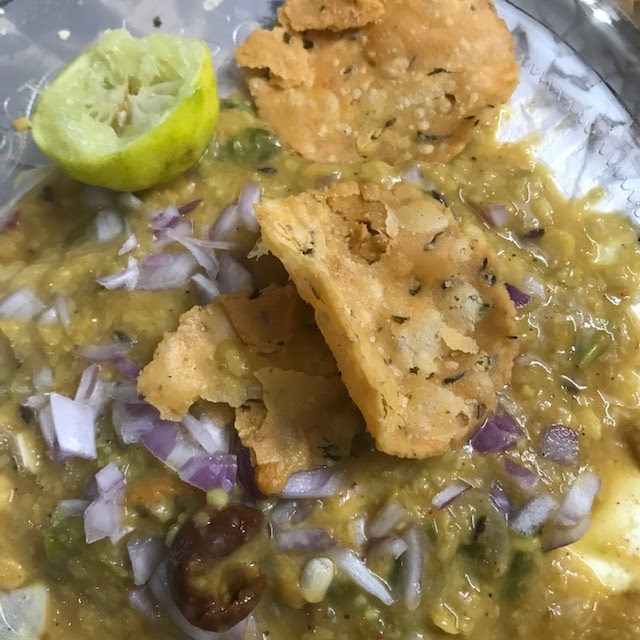I wanted to choose style over substance and put a cartoonised photo which looks much better than the original but the computer had other plans for me. But let's talk about the substance. This is a mishmash of dal that is inspired by pav bhaji. Over the last two weeks, I've been soaking equal amounts of green gram (moong dal/pesara pappu) and Bengal gram (chana dal/senaga pappu) to make an ordinary dal which is much lighter than dal made with red gram (toor dal/kandi pappu).
By ordinary, I mean a thin dal which contains some onion, a couple of tomatoes, green chillies, some ginger and turmeric that is pressure-cooked and then tempered at the minimum with cumin, red chillies and garlic. The people at home have also been lapping it up too.
One afternoon, I'd spent the whole morning doing chores that I had no energy left when it came to making the rice for lunch. I had made this dal and it was beaming its yellow, bright face at me. I toasted a couple of slices of bread with half a teaspoon of oil, sprinkled some onion and lime juice on the dal and tried it. It was wonderful. Maybe this idea exists already - but to me it was a revelation.
A few days later, I had family over and they came bearing pappu chekkalu (similar to mathri/ tattai), the crispy stuff you see in the photo. I crumbled a couple of them into the dal and ate them - like papri/papdi in chaat - and I liked that combination too. It's heavy, though.
I wanted to share these ideas with you.
The recipe for the dal as well as the combination is very random. So I'm not specifying it here. And I don't know how to make the pappu chekkas. Try it and let me know what you think!






